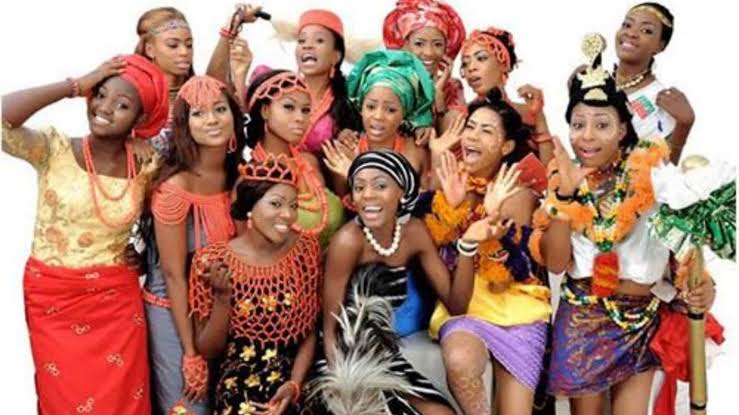
Nigeria is home to hundreds of ethnic groups and tribes, each with their own unique culture, language and history. Some of these groups have existed for thousands of years, preserving their ancestral traditions and customs over countless generations. In this article, we will take a look at the 10 oldest tribes that have called Nigeria home since ancient times. Understanding the origins of these historic peoples provides insight into the rich cultural tapestry of Africa’s most populous nation.
1. Igbo
The Igbo people are one of the largest ethnic groups in Nigeria, with populations spanning the southeastern states of Abia, Anambra, Ebonyi, Enugu and Imo. Archaeologists estimate that the Igbo have lived in these areas near the Niger River for almost 4,000 years, making them among the first groups to settle the region.
The Igbo are believed to have migrated from areas near the Mediterranean and settled in the rainforests of West Africa around 2000 BC. One of the earlier organized Igbo kingdoms dates back to the 9th century AD in the areas around the Nri Kingdom near the Anambra River. The Igbo settled in autonomous villages and decentralized communities, developing a republican system of governance.
Igbo society is structured around hierarchical age grades and titled positions. Religion, festivals, masquerades and other spiritual beliefs play an important role in Igbo culture. The Igbo language is also one of the major indigenous languages spoken in southern Nigeria.
2. Yoruba
The Yoruba are one of the largest and most influential ethnic groups in West Africa, predominantly found in southwest Nigeria and parts of Benin and Togo. Archaeologists have traced Yoruba history in Nigeria back to at least the 4th century BC, ranking them among the oldest settlements.
According to Yoruba oral tradition, the Oduduwa was considered the common ancestor of the first Yoruba communities. The powerful Oyo Empire dominated southwest Nigeria between the 14th and 18th centuries. The transatlantic slave trade also scattered many Yoruba to other parts of the Americas.
Today, the Yoruba comprise over 40 million people across Nigeria, Benin and Togo. They largely inhabit the southwest geopolitical zones. Yoruba towns like Ile-Ife and Oyo-Ile are considered the cradle of Yoruba civilization and culture. The Yoruba language is one of the top 3 major languages in Nigeria.
The Yoruba continue to be influential in academia, business, politics and professions across Nigeria and abroad. Their culture is marked by sophisticated art forms, spiritual concepts, traditional chieftaincy lines and more.
3. Hausa
The Hausa identity emerged as early as 1000 AD in areas spanning northern Nigeria, Niger, Sokoto and Cameroon. Hausa folklore traces their origins to a foundational figure named Bayajidda coming from Baghdad. Interactions with Berber, Songhai, Fulani and Kanuri peoples also shaped early Hausa society.
By the 12-15th centuries, Hausa Sahel city-states like Kano, Katsina and Zazzau (Zaria) were thriving centers of governance and commerce owing to trans-Saharan trade and Islam. Well-known Hausa rulers like Queen Amina led military conquests to expand their kingdoms. While the Hausa states later fell under the Fulani Sokoto Caliphate, the Hausa remain the largest ethnic group in northern Nigeria.
Over time, the Hausa developed their own distinct identity and language separate from the ruling Fulani elite. Hausa dialects are widely spoken across West African countries with large northern Nigerian immigrant populations. Traditional village life, architecture and culture continue among Muslim Hausa communities.
4. Kanuri
Kanuris are among the oldest kingdoms and ethnic populations centered around Borno State in northeastern Nigeria. The origins of Kanem-Borno date back to the 7th century AD, at one point spreading beyond Lake Chad to cover parts of Niger, Libya and Cameroon.
The Kanem empire was known for its cavalry soldiers. Cultural and commercial exchanges also occurred with North African, Nubian, Berber and Arabic peoples. At its height in the 1200s, Kanem-Borno was considered one of the largest African empires prior to European colonization.
While the empire declined and reformed over the centuries, the Kanuri people have retained their customs and ancestral heritage. Along with the Hausa and Fulani, they represent one of the major ethnic groups in the north. Traditional life remains strong in Kanuri villages, along with adherence to Islam.
5. Edo
The ancient kingdom of Benin spanned much of today’s southwestern Nigeria during the 13th to 19th centuries. The Edo people were the main ethnic group inhabiting Benin with a rich complex political history.
Bronze casting and other sophisticated metalwork first developed around the 14th century, sparking a cultural renaissance. Intricate terracotta, ivory and bronze sculptures depicting royal nobility, rituals, spiritual beings and more were created during this Golden Age.
The Benin Empire later engaged with European traders and resisted British conquest from the late 1800s. The Edo continue to be based in the Edo State region encompassing Benin City, playing an influential role in Nigeria’s economic development. Their traditional monarchy, festivals and crafts maintain deep cultural significance.
6. Ibibio
Occupying Akwa Ibom and Cross River states near Nigeria’s southeast coast, the Ibibio are considered one of the earliest settlers of the tropical rainforests in the area. Carbon dating traces Ibibio civilization in southeastern Nigeria as far back as 6000 BC during the Neolithic Sub-Saharan era.
The Ibibio largely lived in decentralized, self-governing clans prior to European colonization. Secret societies and cults helped preserve folklore, coming of age rituals and belief systems. The arrival of missionaries and British traders impacted Ibibio communal life in the 19th and 20th centuries.
Today, the Ibibio language and culture endures alongside Christianity, comprising Nigeria’s fourth largest ethnic group at almost 5 million people. Their folk music, dances, cuisine, proverbs and mythology uphold indigenous traditions. Modern Ibibio art and literature also incorporates contemporary themes.
7. Nupe
Situated in north-central Nigeria near the Niger River, the Nupe claim descent from the earliest ruling dynasty of the Songhai Empire based in Gao. As Songhai power waned around the end of the 16th century, Nupe royalty and scholars migrated south towards Bida in present-day Niger State.
The Nupe came to dominate a confederacy of diverse ethnic groups including the Gwari, Kamuku, Kambari, Dukawa and Koro in the contemporary Middle Belt region. Notable Nupe rulers like Etsu Jimada established the Bida Emirate and repelled early efforts by the Sokoto Caliphate to subjugate Nupe lands.
With a history spanning over a millennium, Nupe culture is highly influential in northern and central Nigeria. They are known for their complex kinship system, musical rhythms, beads, tribal marks and more. Fishing, agriculture and metalworking sustain traditional Nupe life alongside Islam and Christianity.
8. Jukun
The Jukun kingdom is one of the oldest in northern Nigeria, dating back almost 2,000 years. According to legends, the founder of the Jukun was the son of a Yoruba ruler sent to establish a kingdom to the north. Settling near the Benue River, the Jukun formed the kingdom of Kororofa with its capital at Kwararafa.
By the 14th century, Jukun influence extended across many groups in central Nigeria. Powerful leaders like Queen Amina of Zazzau formed alliances and trade partnerships with Jukun rulers. Jukun traditions like Nok terracotta, metal tools, horses and weapons spread widely across the region.
While the Jukun kingdom later fractured and declined after 1700, the Jukun remain in southern Borno, Benue, Taraba and Adamawa states. Today they practice subsistence farming, crafts and retain their historical myths and deities like Unejere and Ogun.
9. Ijaw
Residing in the oil-rich Niger Delta for centuries, the Ijaw ethnicity consists of over 10 million members making them one of the largest groups in Nigeria. Oral traditions date the origins of the Ijaw to between the 4th-6th centuries BC.
The Ijaw consisted of clans organized under village councils without a centralized authority. Fishing and palm oil commerce sustained their economy. With the arrival of British traders and missionaries in the 1800s, the Ijaw were incorporated into the colonial era export economy.
Prominent Ijaw activists like Major Isaac Adaka Boro led independence movements to resist outside domination and demand environmental justice for the Delta. Ijaw youth continue to advocate for self-determination and control over their native lands rich in crude oil and natural gas.
10. Efik
Concentrated near the Cross River region, the Efik people represent another major southern Nigerian ethnicity with deep historical roots. The Efik are believed to have migrated from Arochukwu to settlements like Creek Town and Calabar by the 16th century.
Powerful Efik secret societies like Ekpe, Ekong and Obon regulated social order and justice among largely autonomous villages. Rulers controlled external trade contacts with Europeans who arrived by the 1800s. The Efik also developed their own Nigerian scripts and inscription designs.
Preserving centuries of cultural heritage, over 1 million Efik speakers inhabit Cross River and Akwa Ibom states today. Their native tongue and traditions endure alongside Christianity which spread via missionary activity under colonialism.
Conclusion
Nigeria’s diverse landscape is home to some of the oldest civilizations on the African continent. The Igbo, Yoruba, Hausa, Kanuri and Nupe in the north; the Edo, Ijaw, Ibibio and Efik in the south – these iconic ethnicities trace their lineage in the region back centuries and millennia. Their culture, kingdoms and achievements shaped early Nigerian society.
Colonial pressures tested these groups yet they resiliently preserved ancestral customs. In the modern era, Nigeria’s 250-500 ethnic nationalities depict a rich, heterogeneous society. Learning about their origins and histories is integral for appreciating the tapestry of Nigeria as it exists today. Their cultural values and socio-political institutions continue to inform national identity. While differences sometimes divide, shared pride in their ancient roots can unite all Nigerians.CopyRetry




